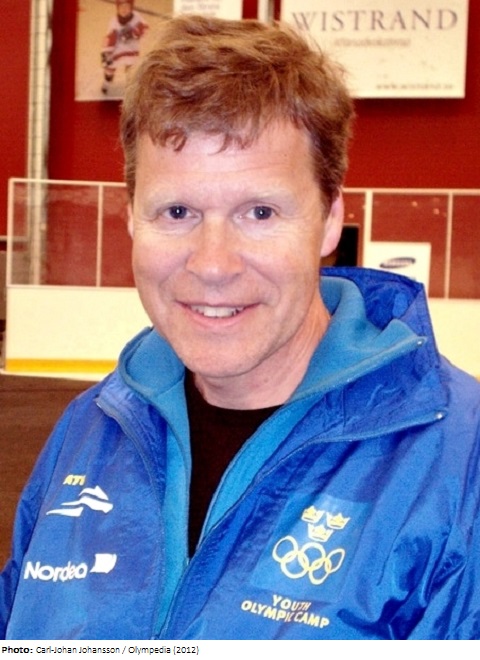Tomas Gustafson began his international career by winning the World Junior title in 1979 and 1980. In his first senior season he did not have much success, but the Swedish team got a new coach before the 1982 season - Norwegian Hans Næss, and this helped Tomas reach the world’s top level. After a thrilling fight with Rolf Falk-Larssen he won the European title in 1982 and set a World Record in the 10,000 m - the last speed skating World Record to be set at Bislett Stadium in Oslo. At the 1983 World Championships, Gustafson scored the lowest points total, normally good enough for the title, but Falk-Larssen’s three distance wins earned him the gold (that rule was later scratched). In 1984, the Swede won his first Olympic gold in the 5,000 m at Sarajevo, 2/100ths of a second ahead of Igor Malkov. Six days later Malkov beat Gustafson by 5/100ths of a second to win the 10,000 metres.
Between the Olympics, Gustafson struggled through knee surgery, meningitis and the death of his father. In the Calgary 5,000 m, he trailed [Leo Visser]’s pace by 8/100ths of a second with only 400 m to go. However he skated an exceptional final lap to win by a third of a second. In the 10,000 m, Gustafson finally gained a comfortable victory, setting a new world record and winning by almost eight seconds. During his career, Tomas Gustafson won 31 national championships, of which seven were all-around titles. In 1998, his wife, Elisabet Gustafson, won an Olympic bronze medal in curling. Gustafson has been a member of the Swedish Olympic Committee and the Athletes’ Commission of IOC. He was awarded the Oscar Mathisen Trophy in 1982 and 1988.
Personal Bests: 500 – 38.10 (1990); 1000 – 1:18.48 (1981); 1500 – 1:53.22 (1991); 5000 – 6:44.51 (1988); 10000 – 13:48.20 (1988).

 Sweden
Sweden SWE
SWE SWE
SWE SWE
SWE SWE
SWE SWE
SWE